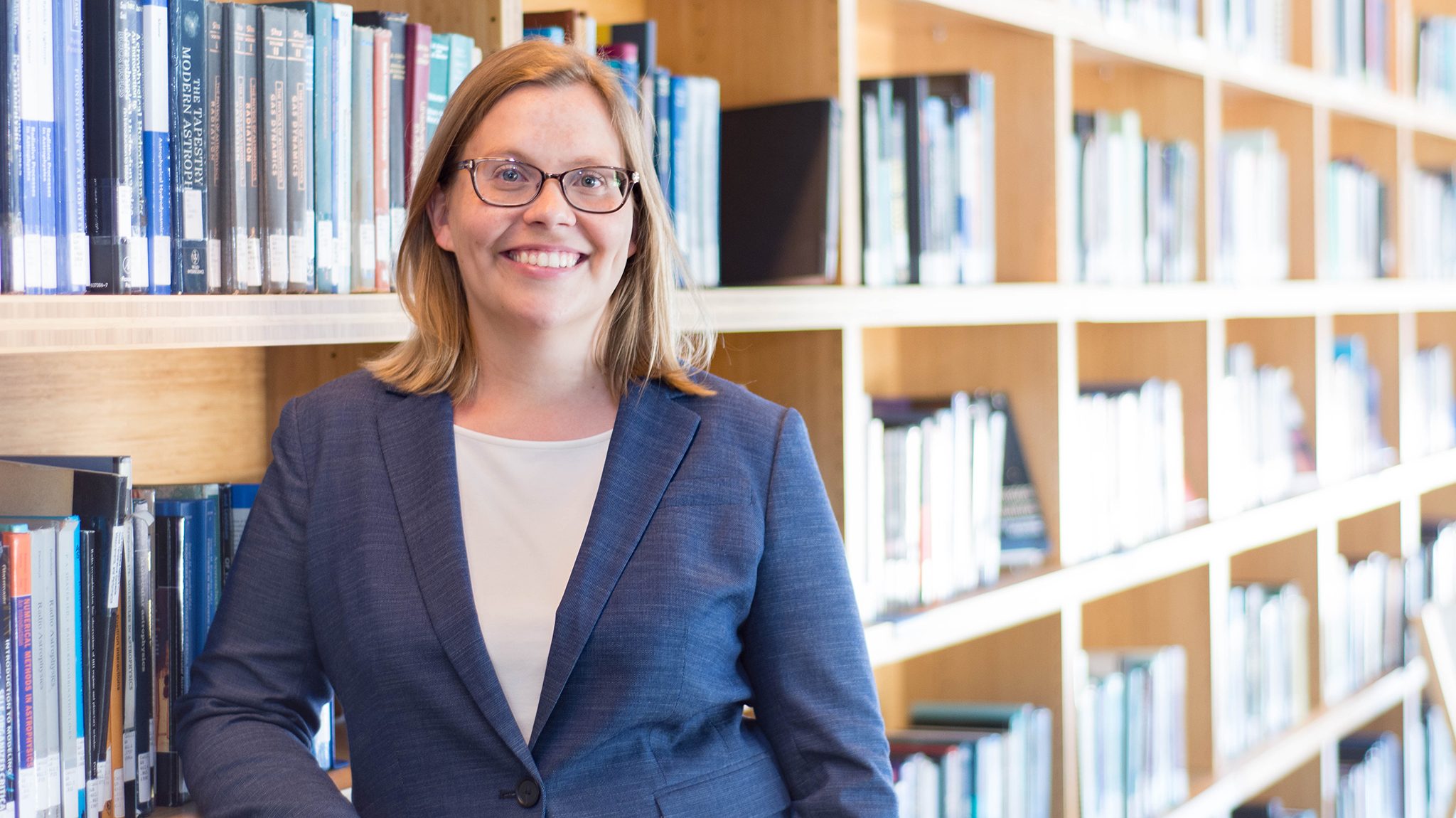
Jennifer Meyer, a visiting assistant professor of physics and astronomy from Massachusetts Institute of Technology, will discuss the discovery of liquid water on one of Saturn’s moons Sept. 18 at Uptown Coffee. Submitted photo
OXFORD, Miss. – The surprising discovery of liquid water on one of Saturn’s moons is the topic for a monthly public science forum organized by the University of Mississippi Department of Physics and Astronomy.
The fall semester’s first meeting of the Oxford Science Cafe is set for 6 p.m. Tuesday (Sept. 18) at its new location of Uptown Coffee, 265 North Lamar Blvd. Jennifer Meyer, visiting assistant professor of physics and astronomy, will discuss “Tides on Enceladus.” Admission to the event is free.
The Oxford Science Cafe features monthly conversation about science known and unknown. Speakers and topics are scheduled through the Department of Physics and Astronomy.
“This is the first meeting at Uptown Coffee,” said Marco Cavaglia, professor of physics and astronomy. “We are very thankful to Uptown Coffee’s owners for sponsoring the Oxford Science Cafe. We hope to have many more meetings there.”
“Enceladus, a small moon of Saturn, has a surface temperature of minus 200 degrees C, or minus 330 degrees F,” Meyer said. “Surprisingly, in 2005, the Cassini mission found evidence that this seemingly frigid moon has liquid water under the surface – and jetting out from the surface in geysers more active than any on Earth.”
Meyer’s 45-minute presentation will include discussion about how tides impact the geology and orbit of moons such as Enceladus. She also will discuss why Enceladus is one of NASA’s prime spots to look for life.
“If Enceladus was warmed by sunlight only, the moon would be solid ice,” she said. “The most likely source of the energy powering the geysers and maintaining the subsurface ocean is tidal heating, but scientists are still working on making the numbers add up.”
Cavgalia said Meyer’s appearance should be most interesting.
“Dr. Meyer is an expert in lunar explorations within our solar system,” he said. “Her presentation is sure to be fascinating and enlightening.”
Meyer earned her doctorate in planetary science from the Massachusetts Institute of Technology.
For more information about Oxford Science Cafe programs, go to http://www.phy.olemiss.edu/oxfordsciencecafe. For more information about the Department of Physics and Astronomy, visit http://www.olemiss.edu/depts/physics_and_astronomy or call 662-915-7046.